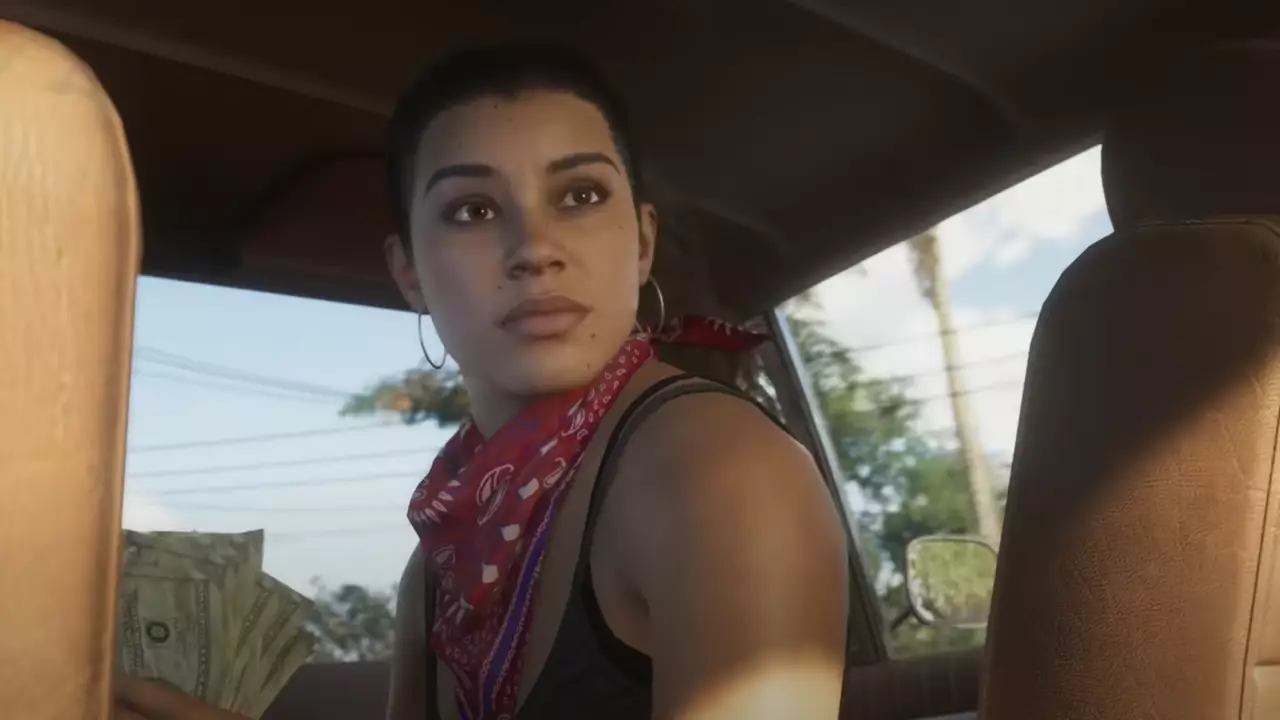The landscape of the gaming industry is poised for significant change with the upcoming release of Rockstar’s Grand Theft Auto VI (GTA VI). Slated to launch in Fall 2025, this highly anticipated title is not merely another installment in a long-running series; it holds the potential to redefine market dynamics, boost console sales, and generate unprecedented revenue. Even before its release, GTA VI is expected to surpass $1 billion in preorder sales and achieve 40 million copies sold within its first year on the market. As this mega title looms on the horizon, the ripples of its impact will likely be felt across the entire gaming ecosystem.
The staggering preorder numbers alone hint at the cultural phenomenon that GTA VI is expected to become. According to Strauss Zelnick, the CEO of Take-Two Interactive, which owns Rockstar Games, the success of major titles like GTA VI historically correlates with a surge in console sales. This fact is particularly poignant considering the dismal performance of console hardware in 2024; a year characterized by dwindling sales figures across the PlayStation, Xbox, and Nintendo Switch platforms. Zelnick’s optimism about 2025 indicates a belief that the release of high-profile games will act as a catalyst for renewed interest in console gaming.
Beyond the allure of GTA VI, Take-Two is slated to release several other major titles, including WWE 2K25 and Mafia: The Old Country, suggesting that the company is well-prepared for an exciting year focused on entertainment. Each of these releases serves as a strategic move to bolster their overall market presence, painting a picture of a company that is not merely riding on the coattails of one blockbuster hit but rather crafting a multifaceted approach to engaging gamers.
However, it is critical to contextualize Zelnick’s optimism within the broader trends affecting the console market. 2024 saw a significant drop in hardware sales, exacerbated by an aging console generation. Nintendo’s anticipated Switch 2 and rumors surrounding the next-gen Xbox and PlayStation 6 highlight the industry’s adaptive nature. New hardware often reinvigorates consumer interest, and when coupled with blockbuster games, it creates a confluence of factors that can lead to soaring sales.
This context raises important questions: Will the release of GTA VI and other major titles be enough to reverse the trend? Can new hardware launch simultaneously sustain the momentum generated by marquee games? Zelnick’s comments suggest a cautious yet hopeful stance that while history may repeat, the nuances of present market dynamics require careful navigation.
The future of gaming hardware may also hinge on economic policies, particularly tariffs on goods imported from Canada and Mexico. Zelnick indicated that potential increases in tariffs could negatively impact console sales, an alarming prospect for an industry already struggling with sales figures. The uncertain landscape could prompt studios to rethink launch strategies, platform releases, and even pricing. The ongoing debate surrounding free trade versus protective tariffs adds an extra layer of complexity, calling for stakeholders to remain vigilant and adaptable.
A notable shift in consumer preferences can also be found in the rising popularity of PC gaming. Zelnick pointed out that the increasing share of the market devoted to PC gaming warrants attention as industry trends evolve in 2025. This observation presents both a challenge and an opportunity for console manufacturers as they grapple with the competitive landscape. While the allure of a dedicated gaming console remains strong, the flexibility and performance specifications of gaming PCs continue to attract a growing segment of the gaming population.
Moreover, the tactical decision of Take-Two not to launch GTA VI on PC alongside consoles indicates a strategic maneuver to promote console sales initially, thereby ensuring a launch exclusively favoring hardware sales before expanding to other platforms.
As the imminent release of Grand Theft Auto VI draws near, the implications for the gaming sphere are both exciting and complex. With the potential for revitalized console sales, ongoing challenges posed by economic factors, and the growing prominence of PC gaming, industry stakeholders must prepare for a shifting landscape. While anticipation builds around the forthcoming game releases, the industry must remain agile, adapting to both consumer preferences and the economic climate, in a bid to not just survive, but thrive in the dynamic realm of gaming.

